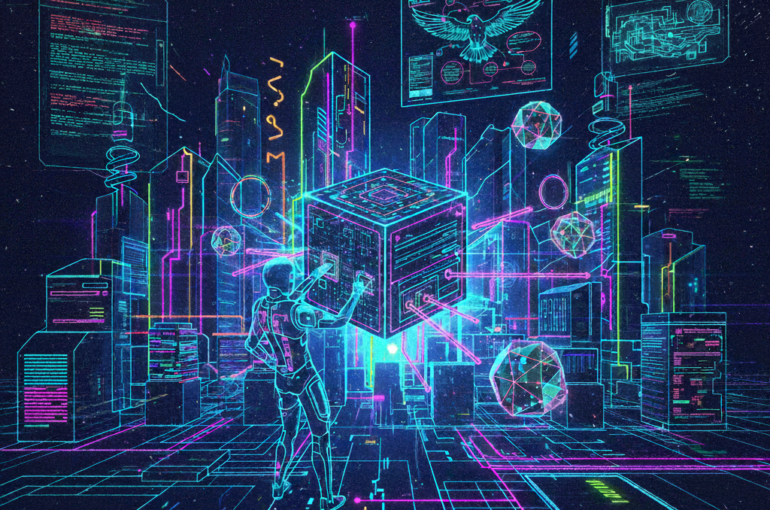Is Artificial Intelligence the same as Machine Learning?
In the rapidly evolving world of technology, terms like Artificial Intelligence (AI) and Machine Learning (ML) are often used interchangeably. However, while they are closely related, they are not the same thing. In this blog post, we’ll dive into the intricacies of AI and ML, unravel their differences, and explore how they are shaping our future.
What is Artificial Intelligence?
Artificial Intelligence is a broad field of computer science that focuses on creating intelligent machines that can perform tasks that typically require human intelligence. These tasks include visual perception, speech recognition, decision-making, and language translation. AI systems can be categorized into two main types: narrow AI and general AI.
Narrow AI, also known as weak AI, is designed to perform specific tasks, such as playing chess or recognizing faces. These systems are highly specialized and can outperform humans in their specific domains. On the other hand, general AI, or strong AI, refers to machines that can perform any intellectual task that a human can. While narrow AI is already a reality, general AI remains a hypothetical concept.
What is Machine Learning?
Machine Learning is a subset of Artificial Intelligence that focuses on enabling machines to learn from data and improve their performance without being explicitly programmed. In other words, ML algorithms allow systems to learn and adapt based on experience, just like humans do.
There are three main types of Machine Learning: supervised learning, unsupervised learning, and reinforcement learning. Supervised learning involves training a model on labeled data, where the desired output is known. Unsupervised learning, on the other hand, works with unlabeled data, allowing the algorithm to discover patterns and structures on its own. Reinforcement learning is a technique where the system learns through trial and error, receiving rewards or punishments based on its actions.
The Key Differences
While AI and ML are often used interchangeably, they are not the same. AI is the broader concept of creating intelligent machines, while ML is a specific approach to achieving AI. In other words, all Machine Learning is Artificial Intelligence, but not all Artificial Intelligence is Machine Learning.
Another key difference lies in their approach to problem-solving. AI systems can be rule-based, meaning they follow a set of predefined rules to make decisions. ML, on the other hand, relies on statistical methods to enable machines to learn from data and improve their performance over time.
The Future of AI and ML
As AI and ML continue to advance, they are poised to revolutionize various industries, from healthcare and finance to transportation and entertainment. AI-powered chatbots are already transforming customer service, while ML algorithms are helping businesses make data-driven decisions and predict future trends.
However, the rise of AI and ML also raises important ethical questions. As these technologies become more sophisticated, it’s crucial to ensure they are developed and used responsibly, with appropriate safeguards in place to prevent unintended consequences.
In conclusion, while Artificial Intelligence and Machine Learning are closely related, they are distinct concepts with different approaches to creating intelligent machines. As we navigate the AI-driven future, understanding these differences will be key to harnessing the full potential of these technologies while mitigating their risks.
ASK THE CEO
ASK THE CEO is our way of explaining what A.I. means for Jamaica. Have questions? ASK.
Here are some questions our audience have ask before
What are the common uses and applications of AI?
AI is used for contract analysis, object detection and classification, image recognition, content distribution, predictive maintenance, data processing, automation of manual tasks, and data-driven reporting1
What are intelligent agents, and how are they used in AI?
Intelligent agents are autonomous entities that use sensors to perceive their environment and actuators to perform tasks or achieve goals. They can be simple or complex and can be programmed to learn and improve.
Other articles
-

The AI-Powered Holiday: Smart Technology for Deeper Human Connection
The scent of cinnamon and pine fills Sarah’s kitchen as she reviews her holiday timeline on her tablet. What might appear to be simple meal planning actually represents a sophisticated collaboration between human intention and artificial intelligence. Her AI assistant has analyzed three years of family preferences, dietary restrictions, and cooking success rates to suggest […]
Enroll -

AI Agents Are Rewriting the Rules of Cyberespionage
The digital battlefield has evolved beyond recognition. While cybersecurity experts once tracked individual hackers and their signature malware, today’s threat landscape resembles something closer to a biological ecosystem. Autonomous AI agents now operate independently, learning from failures, adapting to defences, and coordinating attacks with a sophistication that would make military strategists pause. Recent intelligence reports […]
Enroll -

Caribbeans Can Win the World Cup with AI – The Island Blueprint for Global Football Glory
When people speak about the World Cup they often picture Europe or South America. Yet the Caribbean has entered a rare moment in football history. Curaçao has already qualified for 2026. Haiti is in. Jamaica and Suriname are still pushing through the playoffs. This is the first time in living memory that the region has […]
Enroll

